Time reading skills Extra Challenge Math Worksheets for Ages 7-9
5 filtered results
-
From - To
Enhance your child's understanding of time with our engaging Extra Challenge Math Worksheets for ages 7-9! Designed to develop essential time-reading skills, these interactive worksheets focus on concepts like telling time on analog and digital clocks, calculating duration, and converting time measurements. Tailored for young learners, our materials foster critical thinking and problem-solving while making math fun and accessible. Whether used in the classroom or at home, these worksheets provide a comprehensive approach to mastering time concepts. Perfect for extra practice or as a supplemental resource, empower your child to become a time-savvy math whiz today!
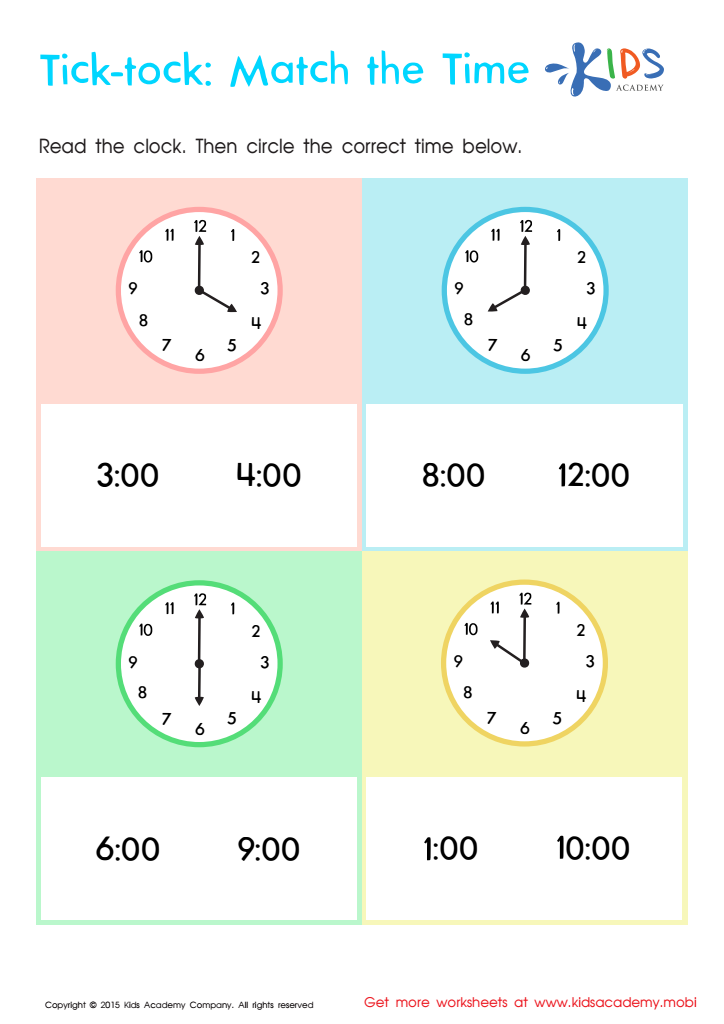

Telling The Time Worksheet: Part 4
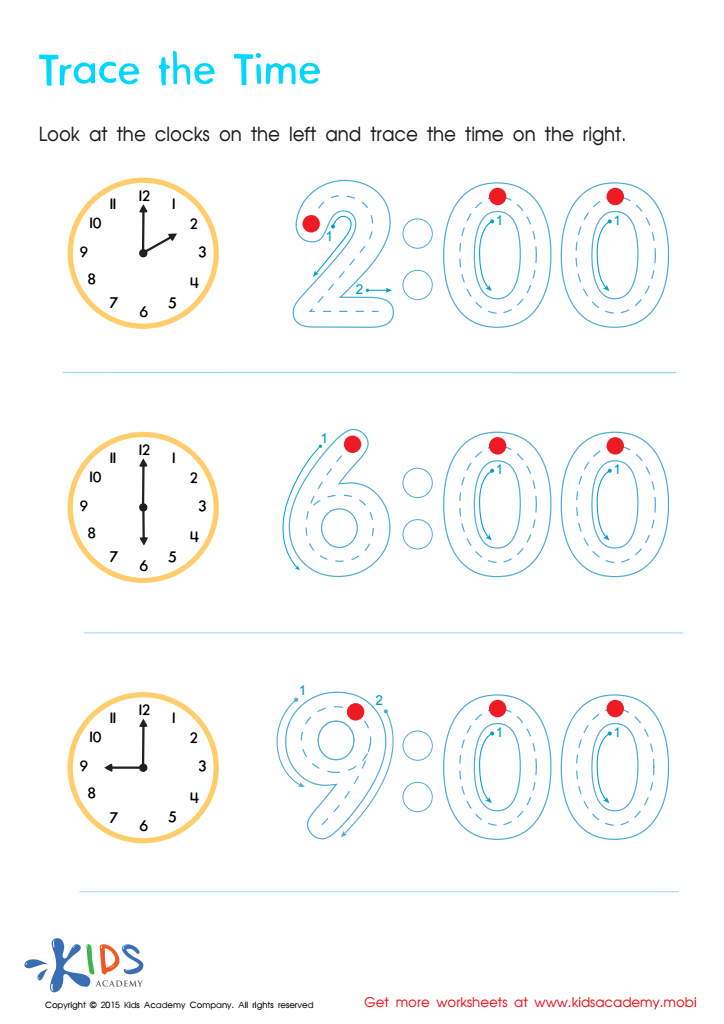

Telling The Time Worksheet: Part 2
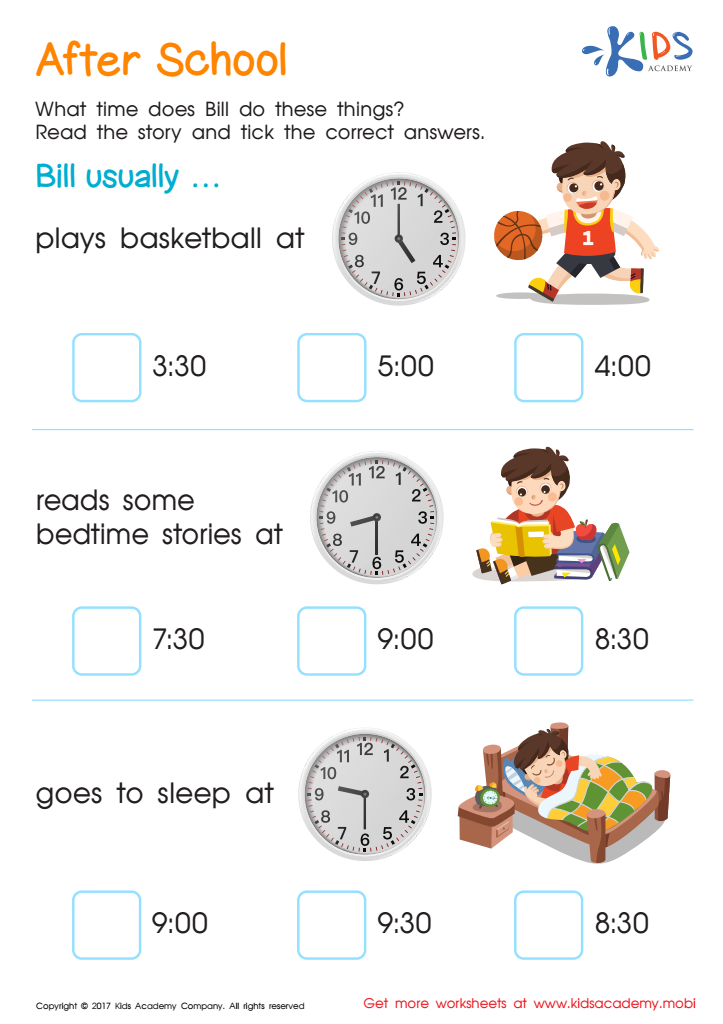

After School Time Printable
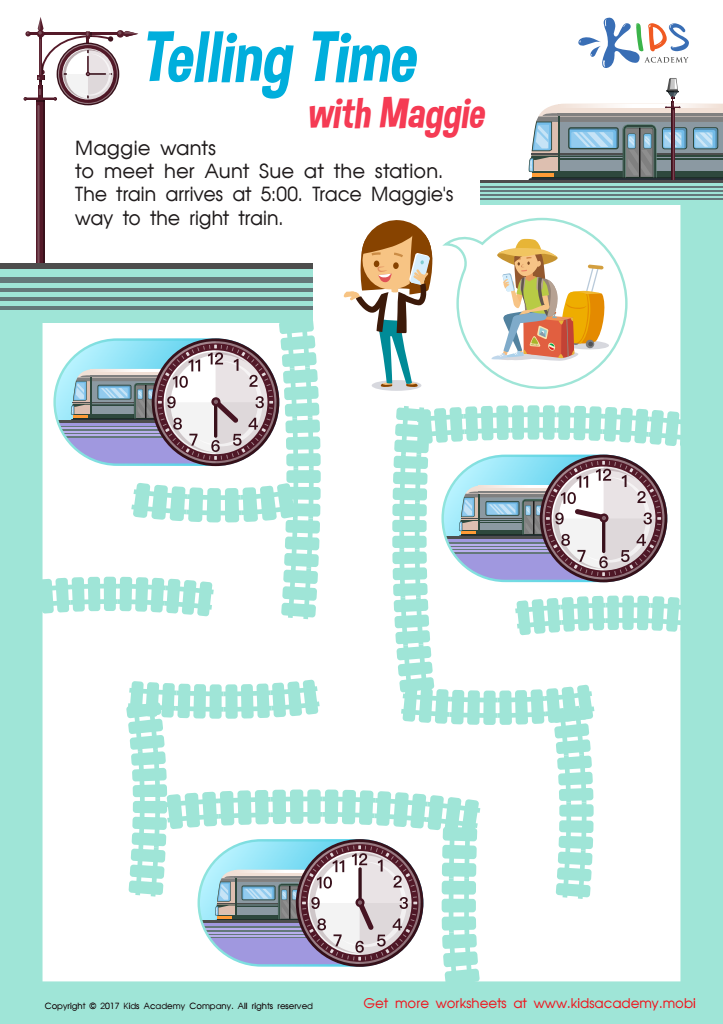

Telling Time With Maggie Time Worksheet
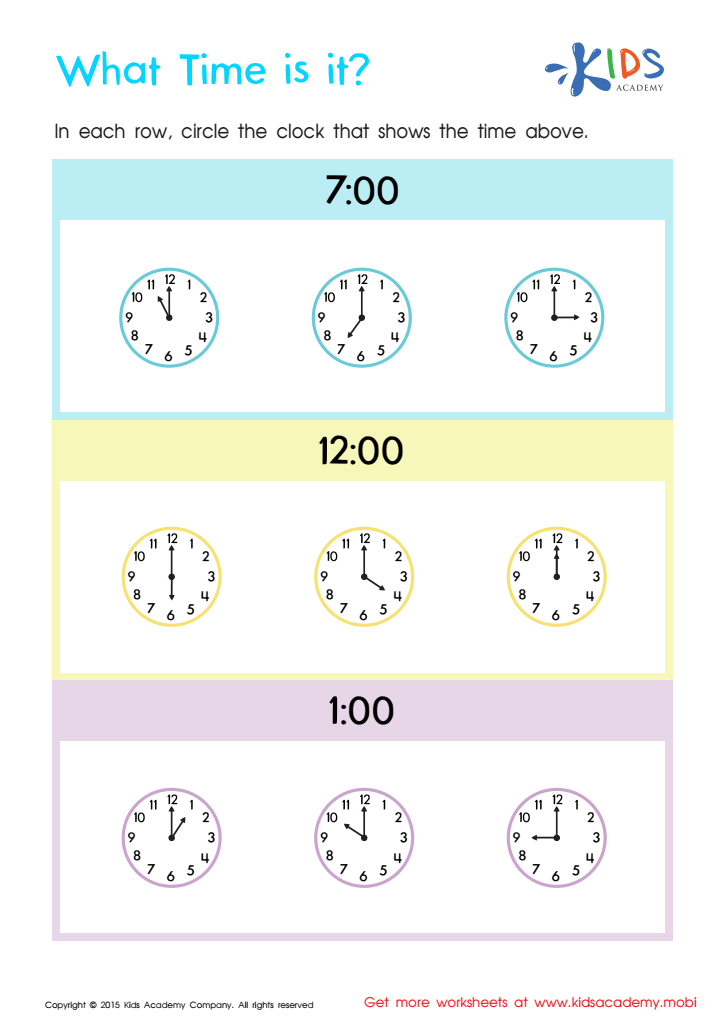

Telling The Time Worksheet: Part 3
Parents and teachers should prioritize Time reading skills in the Extra Challenge Math for Ages 7-9 because these skills are crucial for a child's overall development and comprehension of mathematical concepts. As children navigate early mathematics, understanding time enables them to make sense of schedules, manage activities, and enhance their executive functioning.
Moreover, developing time reading skills plays an essential role in fostering independence and responsibility in young learners. By grasping how to read clocks and understand time increments, children can apply this knowledge to their daily lives, from understanding classroom routines to engaging with homework assignments on time.
Additionally, integrating time reading within mathematical challenges offers a fun and engaging way to reinforce both numeracy and literacy. It encourages critical thinking and problem-solving, helping children connect different subjects creatively.
Furthermore, mastery of time concepts builds a foundational skill set for more complex mathematical concepts in the future. By emphasizing these skills in early education, parents and teachers empower students, paving the way for a positive learning experience and successful academic future. Supporting children's development in this area not only enriches their present understanding of math but also sets them up for lifelong advantages.
 Assign to My Students
Assign to My Students




















